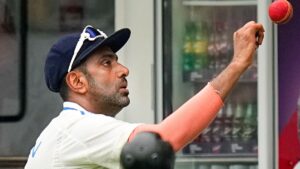Nadal, Djokovic and Murray slam Wimbledon decision to ban Russian and Belarusian athletes

Explaining its stance, Wimbledon said it didn’t want to “benefit the propaganda machine of the Russian regime.”
“I think it’s very unfair (on) my Russian tennis mates, my colleagues,” Nadal said in a press conference on Sunday ahead of the Madrid Open. “It’s not their fault what’s happening in this moment with the war.
“I’m sorry for them, Wimbledon just took their decision … the government didn’t force them to do it. Let’s see what happens in the next weeks, if the players will take some kind of decision in that regard.”
Ukrainian players have largely supported Wimbledon’s ban, and Sergiy Stakhovsky — who retired earlier this year and has since joined the Ukrainian army to defend his homeland — condemned Nadal’s stance.
“Please tell me how it is fair that Ukrainian players cannot return home? How it is fair that Ukrainian kids cannot play tennis? How is it fair that Ukrainians are dying?”
The All England Lawn Tennis Club’s (AETLC) decision marks the first time that Russian and Belarusian players have been banned from an elite tennis event following Moscow’s invasion of Ukraine.
Several high-profile players would be unable to compete, including the men’s world No. 2 Daniil Medvedev and the women’s world No. 4 Aryna Sabalenka.
“My understanding of the guidance was that Russians and Belarusians can play if they sign a declaration that they’re against the war and against the Russian regime,” he said to journalists at the Madrid Open.
“I’m not sure how comfortable I would feel if something happened to one of the players or their families (as a result).”
In the days following their invasion of Ukraine, Russia’s parliament passed a law mandating jail terms of up to 15 years for spreading intentionally “fake” news about the military, greatly increasing the risks for individual Russians speaking out against the war.
“It’s not the same thing, but going through something similar earlier this year for myself, it’s frustrating knowing that you’re not able to play,” Djokovic said.
“I still stand by my position that I don’t support the (Wimbledon) decision. I think it’s just not fair, it’s not right, but it is what it is.”
“Even if we were to accept entries from Russian and Belarusian players with written declarations, we would risk their success or participation at Wimbledon being used to benefit the propaganda machine of the Russian regime, which we could not accept,” tournament chairman Ian Hewitt told reporters last Tuesday.
The players have not yet announced a coordinated response, but the ATP and WTA are reportedly discussing countermeasures that could include the removal of ranking points from Wimbledon.
“I started a couple of weeks ago, which helps me enormously. But you know, sometimes it goes to a certain extent that it’s scary, the thoughts that come to you,” said Kostyuk, who is extremely conscious of the importance of trying to manage her feelings and says she’s been working with a psychologist.
“I don’t want to say the words because you know, you can figure out what I’m trying to speak about.
“Because at that point, there’s so many things going on, you need to carry so much all at once that you are just like, I can’t handle this anymore.
“I’m just like, what’s the point where it’s all going? It’s never ending like what should I do with my life now? What am I living for?” she said.





